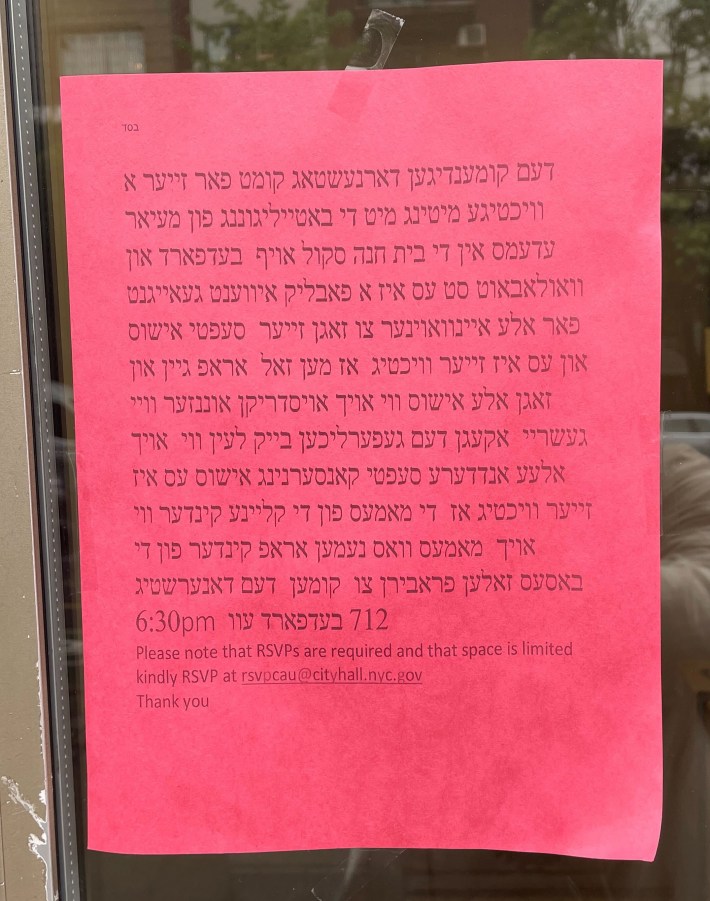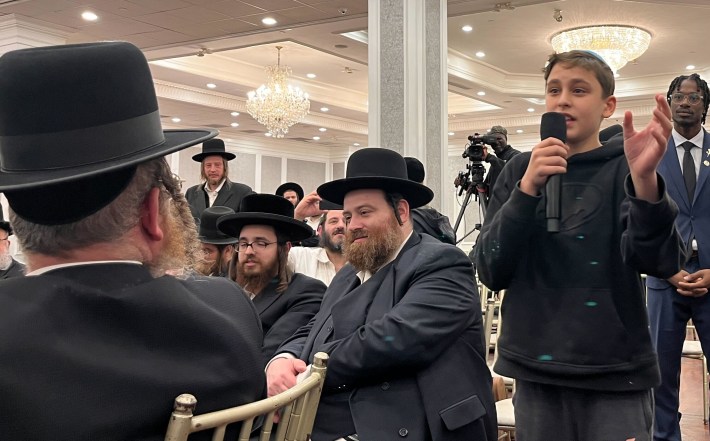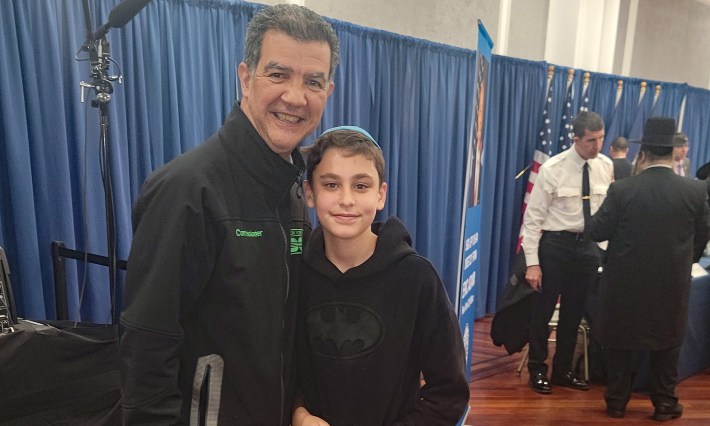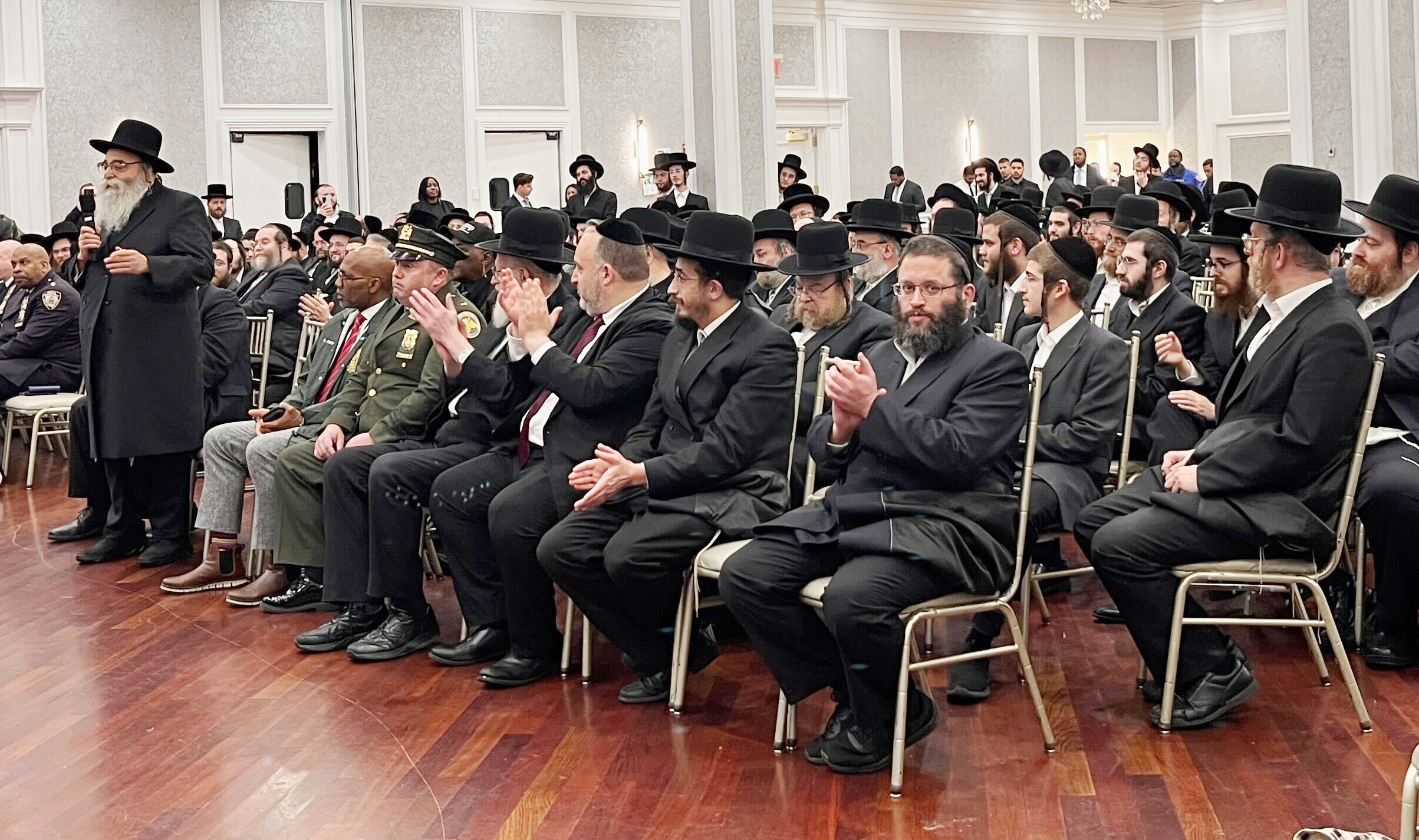On Thursday night, I went to my first town hall. Mayor Adams came to speak at Beis Chana School on Bedford Avenue in Williamsburg. I live nearby and went with my dad — but I got there a little late because I had a math test.
There were about 150 people in the room. Most of the audience were Hasidic men from the Satmar community. Some Hasidic women were there, too, seated separately according to custom, and the rest were other residents from Williamsburg and Bedford-Stuyvesant. The auditorium wasn’t full, and the mood wasn’t tense. People seemed mostly content. There wasn’t a lot of anger in the room, despite predictions of conflict that stemmed from fliers posted all over the neighborhood to encourage participating by anti-bike locals.
It was clear the mayor had strong ties to the crowd. Many of the speakers said they knew him from when he was a police officer in Brooklyn. People greeted him like an old friend. The meeting stayed respectful, and the questions brought up real issues — but there weren’t any fireworks.
Rabbi David Niederman, the powerful leader of the United Jewish Organizations of Williamsburg, got to speak first. Despite so many threats to Jewish people in the city, and the world, Niederman's biggest concern was the protected bike lane that the city installed on Bedford Avenue between Dean Street and Flushing Avenue. He said it was "dangerous."
Mayor Adams turned it over to Department of Transportation Commissioner Ydanis Rodriguez who patiently explained that Bedford Avenue is simply safer since the bike lane went in about six months ago. Many Hasidic children have been injured by car drivers along that stretch, but those injuries are less frequent now, thanks to the narrowing of the roadway, which reduces speeding.
He reminded the audience that protected bike lanes make roadways safer for all users.

That seemed to defuse some tension, as the meeting no longer became all about the bike lane, as was predicted. Yes, there were some speakers who addressed it, but several questions were about housing. And a man who works in construction talked about how long it takes to get a final fire inspection from the FDNY, and how those delays are costing developers a lot of money. The mayor said it was a difficult issue — and that he actually couldn’t help much. He mentioned that the last time he tried to get involved in speeding up FDNY inspections, he ended up getting into a lot of legal trouble. He added that the city might look into using AI or outside contractors to help reduce the delays.
There were also a few questions about delivery bikes not having insurance. That always seems to come up. But as I biked down the Bedford Avenue bike lane to the meeting, I passed 10 to 20 e-trikes making deliveries — all of them from Hasidic grocery stores. These vehicles aren’t legal because they don’t have pedals, which the law requires. But in Williamsburg — and in Boro Park, too — the police take a hands-off approach to enforcement that would never happen in other parts of the city. Everyone seems to know it, and somehow it works. No one talks about it, probably because the system benefits everyone. The argument over bike lanes becomes a kind of stand-in — a way to complain about change, to push back against how the city is evolving. It’s less about safety and more about the feeling that something familiar is slipping away.

When I got a turn to speak, I thanked the mayor for putting in the Bedford Avenue bike lane. There were a few boos, but also some applause. It wasn’t bad — just a mix of reactions. I told him that I felt safer when I bike to my extracurricular. The mayor nodded and moved on to the next speaker. (A short video clip of me speaking is below.)
After the meeting ended, a few Hasidic men came over to me. They said I’d ruined the meeting by wearing a yarmulke and supporting the bike lane. One showed me a video of a kid getting hit by a bike. I watched it — and honestly, it was a nothing-burger. The kid was going faster than the bike. But even though they didn’t agree with me, they were still nice. We ended up talking about my upcoming bar mitzvah and the Talmud.
I’m glad I went. I got to see how people in my neighborhood think, I got to say something I believe in, and I learned that people can disagree with you and still be kind. I hope the mayor remembers that kids ride bikes, too — and that we want to be safe on the streets we all share.







